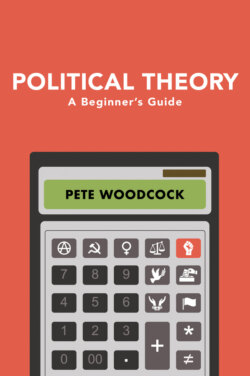Читать книгу Political Theory - Pete Woodcock - Страница 10
Why should we bother with the history of political thought?
ОглавлениеVirtually everyone discussed in this book is dead; many long since so. So why should we find their discussions of politics useful in our modern world? Obviously, seeing as how I have written 80,000 words on the topic, I think they are interesting, and I strongly suspect that they are useful, but it is worth reflecting on precisely why this might be the case before we go any further.
To some of you, the question of interest and usefulness might be separate. We do not necessarily think watching Downton Abbey is useful, nor do we necessarily think this of a Shakespearean play or a novel by Goethe. We might engage with these things for the interest in and of themselves rather than helping us understand the present; we might enjoy it for the historical information it provides or the entertainment it brings. Likewise, one might be interested in the political ideas of historical figures and that that interest is sufficient reason to study them. This seems fine to me up to a point. Some of you might be interested in history, so to understand that John Locke’s outline of contractual government whose powers are limited by the pre-political powers of the individual was a contribution to debates on the Glorious Revolution in England would be of some interest. Here historical insight might be enough.
Others might be looking at these thinkers and debates in an attempt to understand why, say, Republicans in the United States view the political world differently to Democrats, or why the Labour Party is distinct from the Conservative Party in the UK. So here, studying political theory might have a contemporary use as opposed to only historical interest. A key use for the history of political philosophy is to show the genesis of the ideas that we hold today, and illustrate the changes and variations that they have gone through over the years. Take democracy for example; it is perhaps useful to know that the system of liberal representative democracy with universal suffrage that is dominant in the contemporary world is distinct from the direct democracy with limited citizenship that was practised in its first incarnation in ancient Athens. Also thinkers such as Rousseau provide us with a vocabulary to critique contemporary democracy if we do not think it extends sufficiently far. When using this justification for studying the history of political thought, we should be wary of presentism, the notion that all history is leading up to us, and avoid viewing the past through our concepts and concerns.
Another way to study the history of political thought is to focus not on how our ideas have been shaped over time, but instead recognize just how different political concepts were in the past, and to use this as a critical activity. When women were completely ignored in politics, when, without irony, slave owners could write that all men were created equal, when others suggested that the monarch was put there by God and was the only person with any legitimate power, it is too easy to just say ‘how could they believe that’ and move on. The thing is that people did believe in these things; and they believed in them just as much as you or I believe in those political things that we believe in. The critical activity therefore rests in this; just as we are viewing ideas from the past with some incredulity, so too will people reading textbooks like this is a few hundred years look on us with amazement that we could think or act politically in a certain way. We should reflect on our beliefs and wonder what future generations will judge us harshly on. The history of political thought here is not history for its own sake, nor a history to show us how we became who we are, but rather a thought experiment urging us to be critical of the ideas commonly held today.
Activity 1. Outline three commonly held beliefs in society today that you feel a student of political theory in 500 years will find problematic.
(1)
(2)
(3)
